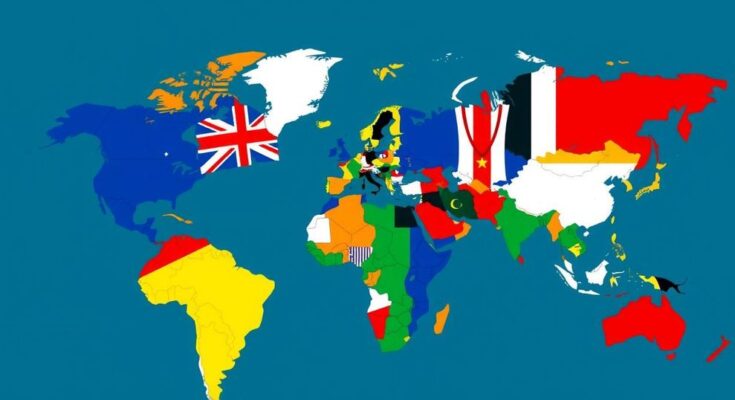Leaders of Commonwealth nations are gathering in Samoa to discuss climate change impacts and the contentious issue of reparations for the transatlantic slave trade. Key discussions include the existential threat posed by climate change to vulnerable island nations and the growing call for the UK to address its historical responsibility in slavery.
The Commonwealth Heads of Government Meeting (CHOGM) is currently taking place in Samoa, where leaders from 56 nations, along with British King Charles, are convening to address some of the most pressing issues concerning their member states. Among the significant topics up for discussion are climate change and the contentious matter of reparations for Britain’s historical involvement in the transatlantic slave trade. As more than half of the Commonwealth’s members consist of small island nations, many are particularly vulnerable to the escalating impacts of climate change, notably rising sea levels. United Nations Secretary-General Antonio Guterres highlighted that ocean temperatures in the Pacific Islands are increasing at three times the global rate, posing grave risks to local populations. During a press conference, Australian Foreign Minister Penny Wong reiterated that climate change is an “existential threat” and constitutes the foremost national security and economic threat to Pacific nations and other Commonwealth members. In addition, several African countries, including Zambia, have voiced increasing concerns regarding climate change’s harmful effects on food security. A demonstration is planned for King Charles to witness firsthand the devastation caused by rising sea levels, as Samoan leaders are expected to issue an ocean protection declaration emphasizing the urgencies associated with climate change. A prominent topic on the summit’s agenda is the push for Britain to provide reparations for its role in transatlantic slavery. Despite British Prime Minister Keir Starmer stating that the UK will not formally discuss reparations at the summit, he expressed a willingness to engage with leaders who wish to address the matter. Several Caribbean nations, represented by the Caribbean Community (CARICOM), have established a commission seeking reparations from former colonial powers, which include the UK, France, and Portugal. Debates surrounding reparations remain polarizing; opponents argue that nations should not be held accountable for historical injustices, while proponents assert that the legacy of slavery has led to enduring racial disparities. A source from CARICOM characterized CHOGM as a vital platform for discussing reparations, emphasizing that “whenever those affected by atrocities ask to talk, there should always be a willingness to sit down and listen,” as noted by Kingsley Abbott from the University of London’s Institute of Commonwealth Studies. The transatlantic slave trade, which persisted from the 15th to the 19th century, saw over 12.5 million Africans forcibly transported and sold into slavery, enduring dire conditions primarily on plantations in the Americas, particularly in Brazil and the Caribbean, while others benefited from their labor.
The Commonwealth is a political association of 56 member states, most of which are former territories of the British Empire. These nations share a commitment to democracy, development, and cultural cooperation. The topics of climate change and reparations for historical injustices, particularly regarding slavery, are increasingly relevant today, as many Commonwealth nations, especially small island states, face severe threats from climate change. Additionally, the legacy of colonialism continues to prompt discussions about accountability and reparations, particularly in the context of the transatlantic slave trade, which has had long-standing social and economic repercussions throughout the Caribbean and Africa.
In summary, the Commonwealth Heads of Government Meeting in Samoa presents a critical opportunity for member states to confront pressing global issues, particularly climate change and the controversial demand for reparations stemming from historical injustices. While nations like the UK may be reluctant to engage on reparations during the summit, the dialogue continues to gain momentum among affected nations, highlighting the importance of acknowledging historical legacies in efforts toward racial equity and justice. The outcomes of these discussions could set the tone for future international relations within the Commonwealth.
Original Source: www.swissinfo.ch




